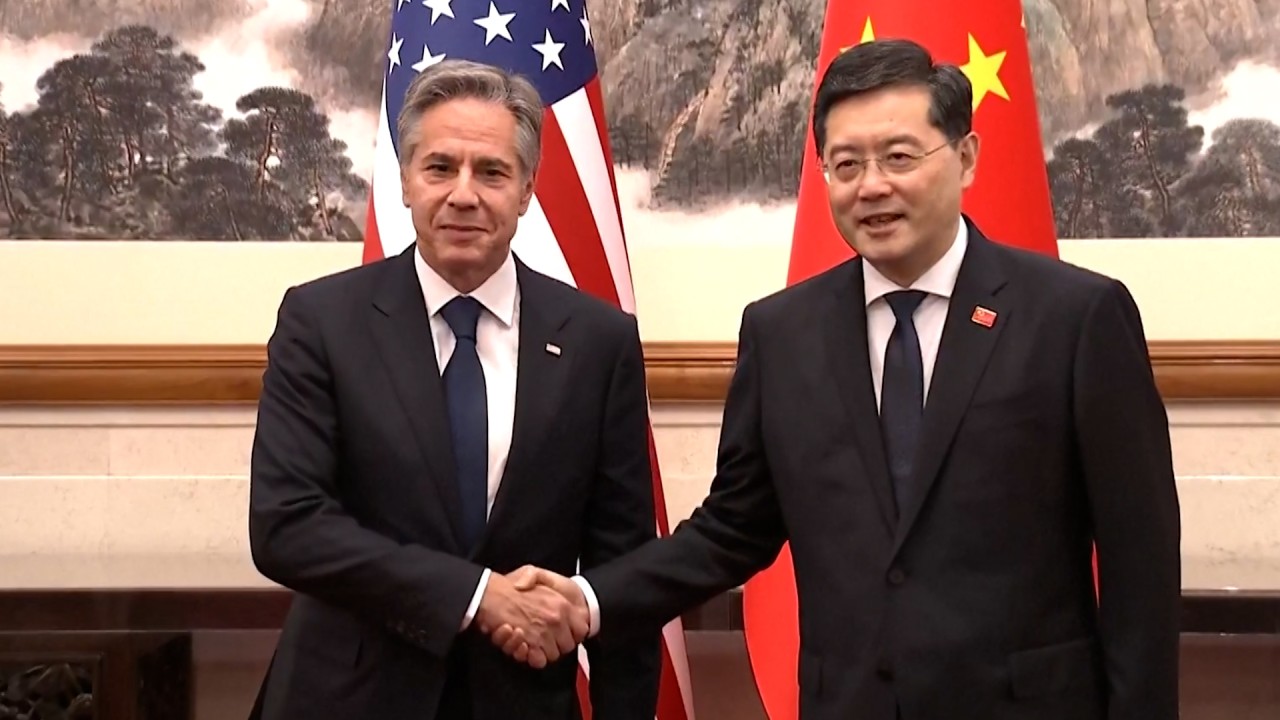
02:03
Blinken and Qin Gang agree to continue talks after ‘constructive’ US-China meeting in Beijing
China should use policy space to boost disposable income, consumer confidence to prop up its economy: US report
- US Treasury department report suggests China should ‘prioritise measures’ to boost household disposable income and consumer confidence
- Report to assess the currency practices and macro policies of key trading partners is seen to partly reflects how Washington views China’s slowing economic activities
China should use “available policy space” to prop up its economy by building consumer confidence, lowering market barriers and reforming old practices, the US Treasury department said in a report last week, as the faltering growth of the world’s second-largest economy has weighed on the global prospects.
“China should prioritise measures to bolster household disposable income and consumer confidence through both direct fiscal support and structural reforms,” the department said in the report assessing the currency practices and macro policies of key trading partners, which was released on Friday.
Overseas worries have also increased about China’s slowing economic growth and what role it can play to support the global recovery.
China is the world’s largest buyer of Australian iron ore, crude oil from the Middle East, American corn and Brazilian soybeans.
The International Monetary Fund estimated in March that China will contribute a third of global growth this year, while the United States and Europe are still fighting high inflation.
Economists and analysts are debating over the level of China’s stimulus after the central bank cut three policy rates last week, with further loosening of the property market and more consumption support forming part of the discussions.
The authorities should respond to declining returns from China’s traditional growth drivers by recommitting to reforms
The US Treasury report, however, warned that short-term measures to support the property sector “should be carefully calibrated” to mitigate a moral hazard, although it said the authorities should help enhance insolvency and resolution procedures.
In terms of local government debt, it stated that stresses can be mitigated if Beijing makes “greater use of its available fiscal space”.
“The authorities should respond to declining returns from China’s traditional growth drivers by recommitting to reforms … including limiting the role of state-owned enterprises and lowering barriers to firm entry and exit,” it added.
The US has long accused China of giving unfair advantages to its state firms and for creating an uneven playing field.
The US Treasury report added that a lack of transparency makes it impossible to verify recent public claims by the Chinese authorities about reducing the magnitude and frequency of interventions in foreign exchange markets.
China, together with South Korea, Germany, Malaysia, Singapore, Switzerland and Taiwan, remained on the US Treasury’s monitoring list due to their currency practices and macroeconomic policies, the report added.
According to the daily reference rate, the yuan has depreciated by around 2.2 per cent against the US dollar this year.
The US Treasury report also said that China’s bilateral goods trade surplus with the US remains by far the largest among its trading partners after growing from US$353 billion in 2021 to US$383 billion last year.


